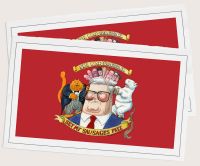
1917: RUSSIA'S RED YEAR - THE MOVIE
07.11.17
Philpsophy Football Launches 1917 Centenary Film
Today, 7th November, on the hundredth anniversary of the storrming of the Winter Palace that completed the October (to confuse matters the Russians back then were using a different calendar) 1917 Russian Revolution Philosophy Football presents 1917 : Russia's Red Year - The Movie. With the help of MIchael Rosen's voiceover and the Red Army Choir providing the soundtrack and thanks to the generous support of the RMT we have turned these historic 24 hours a century ago into a cartoon strip, using the superb drawings of Tim Sanders and the text of John Newsinger who togther created the graphic novel. 1917 : Russia's Red Year.
 Philosophy Football's 1917 Centenary range of plates, T-shirts, books and anniversary badge available from here
Philosophy Football's 1917 Centenary range of plates, T-shirts, books and anniversary badge available from here
Every Revolution Needs Some Smashing Plates
03.11.17
A 1985 Exhibition of Soviet Design came to London and showed Mark Perryman the real meaning of revolution
1985. Thatcherism reigned triumphant. The Miners Strike was coming to a sorry end. With Reagan in the White House the second Cold War dominated what remained of international relations. It was perhaps curious therefore that the Crafts Council of England and Wales should choose to open the year with an exhibition of Soviet textiles, fashion and ceramics 1917-1935, Art into Production.
In 2017 there has been a whole host of Russian Revolution centenary exhibitions, conferences, TV specials and the like. But 1985? The extraordinary richness of the art however was more than sufficient to resist and reverse the pessimism that leftist visitors to the exhibition like myself were suffering from as any prospect of a progressive, let alone a socialist, politics receded ever further into the faraway distance. The emotional downturn of opportunities for change in turn created bitter divisions in and around a Left in retreat . If our lot was convinced we were right, then we were absolutely certain the other lot were wrong, and this was just on our own side. 
How could a dash of 1917 and afters art impact upon this? In the beautifully produced exhibition catalogue, there were some lines extracted from Komsomol’skaya Pravda, the newspaper of the Young Communist League, 28th April 1928 which began to form in my mind a very different approach to a Left cultural politics to the one most of us were used to. And as the 1917 centenary fast approached, with a resurgent Corbynite Left too, I’ve been reminded of those words:
“ We must not accept this ‘non-resistance’. The cultural revolution, like the bugler’s trumpet, is summoning for examination and revaluation everything which mobilises or poisons our consciousness, our will and our readiness for battle!”
So far. So familiar. The over-familiar instrumentalism of almost all versions of socialist, and communist too, cultural politics. But then the extract took a less predictable turn:
“In this ‘parade’ of objects there are no non-combatants – nor can there be! Plates and cups, ie things we see daily, several times a day, which can do their bit for the organising of consciousness – these occupy an important place.”
Blimey, this was wasn’t the usual socialist fare I was well-used to. OK susceptible to a workerist ‘prolecult’ tendency perhaps, though the colourful, often highly feminised, designs throughout the exhibition indicated this was a relatively minor deviation (sic). Rather what the young communists of 1928 were mapping out was a cultural politics that was both all-embracing and highly practical. Pluralist and pre-figurative as the leftie-jargon speak I had learnt by ’85 to drop into any conversation of the right political sort might describe such a venture. And they weren’t going to put up with any naysayers and feet draggers either:
“ We demand that a plate should fulfil its social function. We demand that the role of everyday objects should not be forgotten by our young specialist artists and the bodies in charge of our industry.”
It is easy to mock the idealism but if the debates over what is, was, should, be done in 1917 serve to mask the boldly radical ambition therein then we surely lose something invaluable. This is what Art into Production all those years ago achieved and I’ve never forgotten it. More recently Owen Hatherley’s peerless book Landscapes of Communism does something similar via the architecture of the Soviet era . Or poet Rosy Carrick’s stunning reading of Mayakovsky’s epic poem Lenin. And cartoonist Tim Sanders hugely imaginative depiction of the events of October 1917 via the subversive idiom of a graphic novel, Russia’s Red Year. All three sit outside the orthodoxy of both an establishment culture that treats the Russian Revolution purely as an historical event and a tendency on parts of the Left to divorce the insistence on a particular political interpretation of the revolution from a broader understanding of the heady idealism 1917 inspired but could never entirely discipline to its own ends. In this regard each is both a most welcome addition to the centenary celebrations but also I ‘d suggest an approach to understanding the Russian Revolution that in their different ways can be traced back to those young Communists of 1928 exhorting the production of socialist plates, cups and saucers.
Also coinciding with the centenary has been the release of Armando Iannucci’s blockbuster comedy The Death Of Stalin. The man behind the brilliantly funny The Thick of It which skewered the Blairite world of spin and soundbites with brutal wit has turned to an era that the film’s posters mischievously describe as ‘ a comedy of terrors’. Only the most po-faced would stifle the laughs as one wisecrack after another demolishes what Stalinism had turned Soviet Russia into. But the film ends up being satirical for a cheap laugh’s sake and leaves this cinemagoer at least with a sense that if all we are left with is the cynicism of pointlessness then the prospects for change are inevitably narrowed and all we are left with is the motto ‘who cares, who wins’. This is what the likes of Iannucci, Private Eye and Have I Got News for Youthrive on, a manufactured anti-politics with the lazy assumption that everybody is as bad as each other and never mind either the causes or consequences. The political clowning of Boris Johnson becomes the natural expression of all this, a rebel without a cause except his own personal advancement. Oh c’mon he’s only having a laugh, and what’s the harm in that. £350m for the NHS thanks to #Brexit has at last partly put paid to that sorry myth.
So instead of rollicking in the cinema aisles as one Death of Stalin joke piles into another I prefer to cling to my necessity of having some smashing plates, mugs and saucers. Framed by the utopian idealism for a better world than the one that those in Russia had endured in the years preceding 1917, visualising via the most vivid combination of imagination, originality and clash of colours the prospect of constructing a new society. When that hopeful vision is absent then our capacity to imagine what change might look like lacks something vital too. A sentiment worth preserving via some tasty antique ceramics. Not trapped by the past, that way spells dogma and cultural conservatism. But there is something wrong too with the ahistorical version of modernity which became the watchword of 1990s Blairism. If it’s old it must be crap, the denial therefore of the past ever inspiring the present towards changing what the future otherwise has in store for us.. And most crucially, if you like the revolutionary element, given practical expression via its lived presence in the everyday. Pasokification across Europe has led to a new era of headlong retreat for social democracy buyt this time accompanied by an insurgent, popular, Left that is seeking to challenge and transcend the limitations imposed upon it by a wholesale surrender to neoliberalism. The advances are patchy, and incomplete, not remotely revolutionary according to the 1917 model but decidedly radical and seeking a decisive rupture with the existing system of ideas. In 2017 that’s more than enough for me. 
So where do the plates, mugs and cups of 1917 fit in to all of this? Not to merchandise but to politicise. The revolutionary ceramics, and the process of production the Young Communists demanded is entirely different from the naff trinkets and trifles emblazoned with Jeremy Corbyn’s name and face the Labour was flogging at party conference and no doubt on the stocking-filler list for a fair few Corbynite Christmas treats come 25th December too. Harmless fun, well sort of, and to declare an interest yes Philosophy Football has produced its own COR 8YN T-shirt but if that is the scale of our imagination and productive capacity it just shows how far we still have to go to get anywhere close to the scale of ambition of those 1917 plates. What might a 2017 version look like, fired up and framed by The Corbyn Effect? That’s the kind of question I’d like to hear both being asked, and answered with practical output. And in that process of originality and production creating a great variety of means to identify with a politics that can effect a wholesale shift in the balance of forces from those few, to our many. Now that’s what I call politics.
The 1917 centenary plates collection reproducing original Soviet designs is available fromPhilosophy Football
Making an Art of Revolution
15.09.17
Mark Perryman invites us to wear our dancing shoes to celebrate the October 1917 centenary
To sort of coin a phrase ‘ How do you solve a problem like VI Lenin?’ As the centenary of the October revolution fast approaches the flawed accolades provided by the likes of the Royal Academy, British Library and Design Museum exhibitions will be cleared away and the politics take centre-stage. We’ve already had an inkling of what to expect with the aftermath from Charlottesville sparking the moral equivalence brigade spouting their your communism was just as bad as their Nazism yah-boo sucks effort at intellectual debate.
Much of this is easy enough to disagree with but if in doing so we tie ourselves up in left-wing hagiography then I’m not sure how far we advance our cause either. Lenin remains, of course, the most superb tactician of revolutionary change, and deserves every credit for that, and more too, as a leader of an insurrectionary mass movement who in the process laid the basis for an entirely new society. There are precious few political figures from the twentieth century, what the historian Eric Hobsbawm dubbed as the ‘age of extremes’ who can match Lenin’s achievements. Except for the most embittered of anti-communists none of that should be controversial. The difficulties occur on our side when the tactics, leadership, and new society of Lenin are wrenched out of all context, or as theorists prefer, out of the ‘conjuncture’, to propose a politics of mimicry rather than adaptation to the conditions we face. This is hardly a new debate either, the Italian communist Antonio Gramsci first raised this precise issue in the 1920s when he made the distinction between the revolution as a war of manoeuvre versus the war of position. 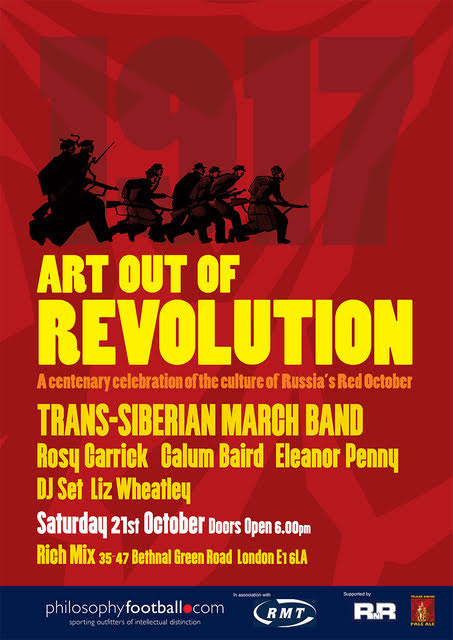
So a century on, how to celebrate 1917? It would be nice to get it right, after all precious few of us are going to be around for the bicentenary! The imperative of revolutionary change, notwithstanding this conjuncture or that, remains unchanged, and thus makes the best starting point. A notion summed up best by the title John Reed’s epic account of October 1917, Ten Days that Shook the World. An ideal so good that neither Hollywood nor Warren Beatty were able to destroy the message and instead produced a rather decent film version, Reds.
1917 served to inspire across the entire spectrum of the arts. Music, poetry, architecture, design, theatre, fashion, literature, film, has there ever been such a moment where art was shaped out of revolution of such a range and on such a scale? A revolutionary imperative that not only inspired, but recognised that to flourish these artists, writers, designers, poets would need the space to express this imperative in their own terms, not as servants of the revolution but in its service.
This first made sense to me in the mid 1980s, when the Crafts Council hosted a London exhibition ‘ Art into Production: Soviet Textiles, Fashion and Ceramics, 1917-1935’. The vivid colours, the variety of shapes, the ever-presence of a sense of movement with a purpose caught my eye and I’ve never forgotten it. Shortly after and the era of Gorbachev, Glasnost and Perestroika meant a much wider re-assessment of Soviet power on the world stage, the beginning of the end of what had threatened to become a new cold war. And this was reflected too in a popular appropriation of ‘Bolshevik chic’. Harmless enough in intent, broadly well-meaning but pretty much devoid of political content, there goes that conjuncture again.
And so where do we end up for October 2017? In post-Soviet Russia Putin will seek no doubt to represent 1917 as indicative of the might of his Greater Russia nationalism, this was the era of the USSR after all, a nation on a scale that Putin today can only dream of. Meanwhile across what used to be thought of as the West parties of social democracy are suffering a phenomenon the writer and activist James Doran has described as Pasokification. A steep decline in support following these parties’ embrace of the neoliberal consensus, in Greece PASOK has suffered the steepest fall of all but elsewhere in France, Spain, the Netherlands, the Irish Republic social-democratic parties have not only declined but faced an insurgent challenge from their Left too. None of this amounts to 1917 revisited but chimes nonetheless with the inspirational motives of radical change.
In Britain the picture is different. Because the insurgency has come from within the party of social democracy itself, the rank outsider, the serial rebel, Jeremy Corbyn. Labour of course is not about to become a revolutionary party, it has never been one and will never turn into one. But the sense that a party set on winning parliamentary power can co-exist with the ambition of reinventing itself as a social movement is increasingly prevalent as the defining characteristic of Corbynism. 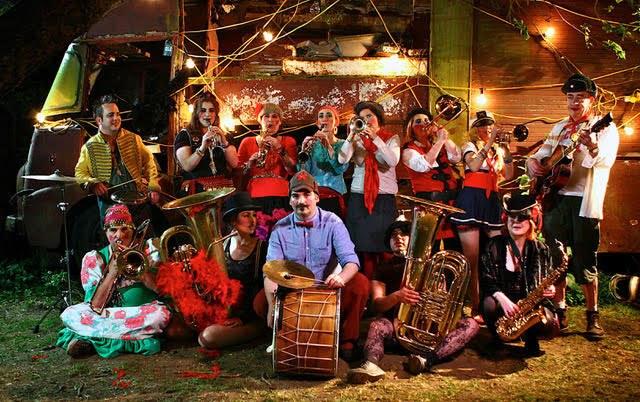
Finding a way to mix all this together for a 1917 centenary night out is no mean feat. But Philosophy Football, with the help of the RMT, are doing that at London’s Rich Mix Arts Centre on Saturday 21st October. Described by Time Out as ‘The Sex Pistols of Balkan Brass’ The Trans-Siberian March band headline with a special Shostakovitch inspired set. Michael Rosen reviews how 1917 produced a wave of childrens books at the time. Rosy Carrick performs extracts and interpretations of the brand new translation of Mayakovsky’s epic poem Lenin she has recently edited. And the surprise hit of the Edinburgh fringe Des Kapital, recalls the events of the Russian Revolution via the songs of Taylor Swift, Katy Perry and Robbie Williams, a history lesson like none other complete with audience singalongs! Add author of Landscapes of Communism, Owen Hatherley and Eldina Begic creator of the Comradettes clothing project with Richard Seymour author of Corbyn: The Strange Rebirth of Radical Politics on the spirit of revolution and be prepared to expect the unexpected.
There will be others who will debate the ins and outs of 1917 and all that what was to be done. That is right and proper, but the road to revolution needs its dancing shoes as well as marching boots. 1917? Ain’t nothing but a party.
Art out of Revolution is at Rich Mix, East London Saturday 21st October. Tickets from here
Sicily Unlimited
14.09.17
Former Philosophy Football FC 'Gaffer ' Geoff Andrews has set up a network of study tours to explore Sicily’s rich culture. His latest idea is to join with Philosophy Football in opposing commercialised tourism.
I used to spend a couple of weeks a year tutoring on Open University summer schools, the most rewarding teaching environment I have ever experienced. Sadly the OU don't do these schools anymore but I was keen to continue the idea, talking about Sicilian history, film and food, which I had picked up travelling and writing about Italy over the past decade. In addition, running Philosophy Football FC had brought home the simple pleasutes of the beautiful game in contrast to the power of big companies. Happily I can now bring these two experiences together in a way which celebrates culture for the non-conformist traveller.
Sicily is being rediscovered by the British. Once popular with Victorian and Edwardian travellers on pilgrimages, seeking convalescence or on a ‘Grand Tour’ of another ‘exotic’ culture, today it appeals to a new cohort of Brits. Perhaps tiring of ‘Chiantishire’ and persuaded by the charm and scenery of the Inspector Montalbano series on BBC4, increasing numbers of discerning travellers are making their way south. But what do they find when they get there?
It is a poor island economically, not only in comparison to Italy’s more affluent north but by wider European standards. It still suffers from poverty, unemployment and organised crime, while it has carried a large economic burden as one of the main arrival-points for migrants from North Africa. Yet it is extraordinarily rich in culture, with its unique and complex history of being dominated by different powers evident in its Greek temples, Norman castles, Baroque architecture and, of course, its food, which varies wildly right across the island. It was the home of some Italy’s most distinguished writers, including Giuseppe Tomasi di Lampedusa, the author of The Leopard, whose ‘Gattopardism’ (‘If we want things to stay as they are, things will have to change’) still helps explain political inertia; Leonardo Sciascia, whose novels on the search for truth and justice in the face of Sicily’s problems helped bring the mafia to serious public attention, and the feminist writer Dacia Maraini, brought up in Bagheria, near Palermo. The playwright Luigi Pirandello, who might be considered one of the first to portray ‘post-truth’, was from Agrigento, in an area now categorised as the ‘strada dei scrittori’, a land famous for its writers. Sciascia and Andrea Camilleri, the author of the Montalbano novels (and it is best to read the books in advance of the TV series), are both from the wider province. Some classic Italian films, among them Cinema Paradiso and Il Postino as well as classic neo-realist ones, Stromboli and La Terra Trema, were set on the island. Taormina, Sicily’s top tourist venue, perched high over the Ionian Sea, with its wonderful Greek theatre in the shadow of Mount Etna, an active volcano, was once a haven for writers, including D.H.Lawrence and Truman Capote. 
But what is the best way of exploring Sicily? Sicily’s unique history and contemporary predicament – rich in culture, relatively poor economically – makes it ideal for sustainable tourism. If you want a laid-on corporate experience, then it is not for you. Yet, the quality of the accommodation in agriturismi, (basically, family-owned ‘farm hotels’, often of 5 star quality), the food – an endless menu from streetfood arancini and panelle, to many varieties of fish, fruit and vegetables – and the renowned Etna wines, would put to shame much of what is counted as ‘luxury’ in today’s elite tourism. Sicily is famous for its hospitality where visitors are often regarded as guests rather than tourists.
Recent years have brought a new generation unwilling to wield to past problems and restraints. For example, there has been an open challenge to the power of the mafia by groups like Libera Terra, which produces and sells quality olive oil and wine on land confiscated from the mafia, and Addio Pizzo, which says ‘goodbye’ to protection money by increasing visible resistance and selling items produced by victims of mafia violence who suffered because they refused to pay it.
Sicily Unlimited was set up to explore this rich culture and work with local associations to help promote a sustainable vision of the island. Each year, we offer summer and Easter courses on Sicilian history, film and food, taught by myself, awriter and historian, and the London-based Sicilian journalist Francesca Marchese. We stay on an agriturismo and collaborate with groups like FAI (the Italian National Trust) and Slow Food, in order to bring local knowledge and experience to the course. In the Kolymbethra Gardens in Agrigento’s Valley of the Temples, for example, FAI has done magnificent work in restoring an abandoned area of outstanding natural beauty. Nearby, at the Scala dei Turchi (Turkish Steps), a familiar site in the Inspector Montalbano series, it has led a successful campaign to remove illegally-built eyesore buildings which threaten the environmental heritage of a UNESCO protected space. In Sicily Slow Food has been a grassroots movement which has done much to get just pay for small producers, defend traditional foods at risk, promote ‘eco-gastronomy’ and celebrate the simple pleasures of eating local food in a period which has seen the inexorable rise of global fast food corporations. The film and food week we organise on the Aeolian Islands in May combines visits to film locations with tastings of local food and wine during ‘Salina Isola Slow’, a Slow Food weekend.
Sicily Unlimited shares a similar outlook to Philosophy Football in promoting alternatives to corporate culture, offering a different idea of ethical consumption and working with a range of progressive organisations. In this light we are delighted to offer a 15% discount off the fees of our courses together with a free Philosophy Football shirt of your choice if you join us in Sicily. For details and bookings for next year’s Easter trip to Etna, Catania and Taormina and the Salina film and food trip please visit Siciliy Unlimited you can also email us here.
Geoff Andrews is a writer and historian, specialisiing in twentieth century British and Italian politics and culture. His latest book, The Shadow Man, was a biography of the communist intellectual James Klugman. His next book will look at the so-called 'fifth man' of the Cambride spy circle, John Cairncross. You can follow Geoff on twitter @andrewsgeoffand Siciiy Unlimited @siciliyunlimited
Explaining Football from Below
08.09.17
Mark Perryman of Philosophy Football describes the possibilities of fan culture as a social movement.
During the international break a mini-spat over the England players’ pride, or lack of, in wearing the three lions on their shirt provided a helpful starting point towards the remaking of football as a social movement. Explaining England’s inability to go even 1-0 up against the proverbial minnows of the Maltese football team until well into the second half has a lot less to do with the lack of emotional commitment from Harry Kane et al to end now the more than half-century’s worth of years of hurt than their actual inability to play. ‘Pride’ is the easy cop-out, what we’re actually witnessing is the ever-decreasing quality of English football. How many of England’s starting eleven would Paris Saint German be chasing after with their chequebooks, or Barcelona and Borussia Dortmund be in the market for after their most talented players have been sold off ? Of course the best eleven England can put on a pitch isn’t all bad but mostly their talent is boosted at club level by playing alongside foreign, more technically gifted and able players. On their own they’re not half as good. And for the players who turn out for United, City, Chelsea, Liverpool and Spurs a World Cup Qualifier, and short of reaching the long-forgotten semi-final stage, the tournament itself, doesn’t come close to being the biggest match of their careers compared to the more realistic chance, until recently at any rate, of Champions League glory. It gets worse, the enormous wealth the Premier League provides to their clubs means even for those players faraway from making it into the Champions League, the season-long battle to maintain that status pushes England games pretty far down their, and their coaches, list of priorities. Arguably we might even stretch this to securing promotion from the Championship (sic) to the Premier League too.
Lack of passion? No, the result of commercial calculation. This is at the core of the sickness of what football has become, the hopeless confusion of mistaking the richest league in the world with being the best. It’s no accident that the Championship play-off final is described almost exclusively in terms of the riches awarded to the victor rather than the quality of the football played.
For a period those disillusioned with the Premier League and all that adopted the mantra ‘Against Mod£rn Football.’ We first turned this into a T-shirt having spotted a Croatian Fans’ banner at Euro 2008 ‘ Against Mod€rn Football.’ The sentiment was internationalist enough to make perfect sense. But being ‘against’ is the classic oppositionalist default position. A catchy phrase that fits neatly on to chest sizes small-XXL but ‘Against Mod£rn Football’ is increasingly problematic in three ways.
Firstly, there’s more than one version of modernity, is the ‘against’ aimed at the growth of women’s football, refugee leagues, a game without borders, the irresistible plurality of where fans come from, race, gender, sexuality and nationality divisions broken down. Being against all that ends with oppositionalism masking conservatism, or worse. Secondly the business of football has become inseparable from multinational corporate power. The macro-politics to reform the game traditionally adopted by both Labour and groups such as the Football Supporters Federation means any agency to enforce these policies seems almost impossible to imagine. Somehow I think an incoming Labour Government is going to have more immediate issues on its mind than nationalising the Premier League. Thirdly, therefore, there is a necessity to reimagine fan culture not as hardpressed consumers but as a social movement with the capacity itself to make change.
Currently this is very much a minority movement, but all such movements start out with big ambitions and modest advances. Their potential to grow and effect change is dependent on the ability to inspire via small victories which help convince wider forces this is a direction of travel worth pursuing. We can see this in the rise of militantly anti-racist ultra groups, at Clapton, Whitehawk and elsewhere. The growth of start-up football clubs, Hackney Wick FC, City of Liverpool FC and the women’s football club AFC Unity in Sheffield. The spread of community ownership up and down the divisions. The pro-refugees message heard from at least some stands, not on the scale of what was seen across the Bundesliga but present nevertheless. 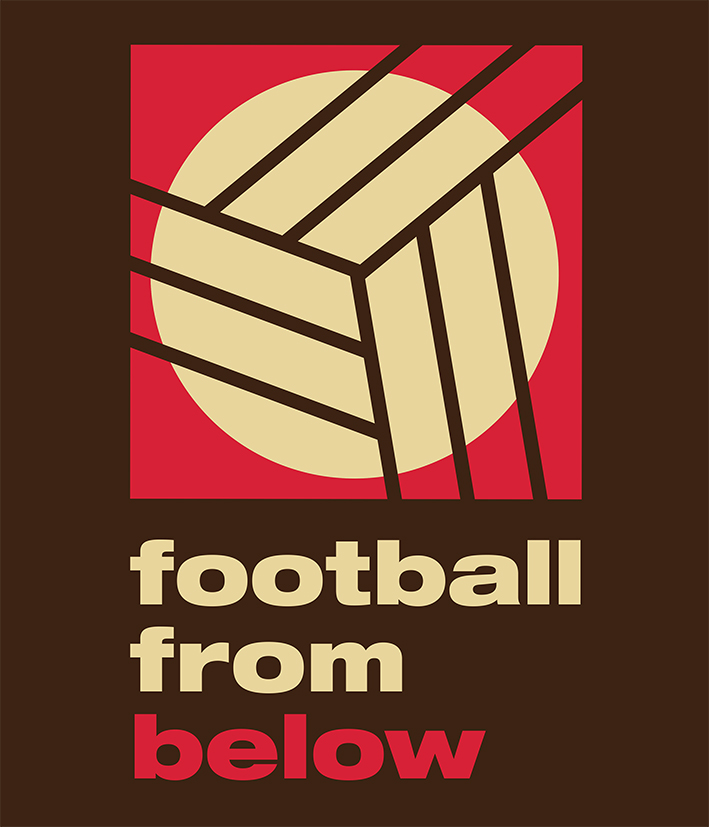
At the core of any such movement is gender. Recognising that if football is to become modern for all then the sport’s entrenched masculinity has to be challenged. Treating women’s football as different yet equal is a key step towards a truly inclusive game. On this basis the Equality FC initiative at Lewes FC where mens and womens playing budgets are the same, is a model for all clubs to aspire to if the pressure ‘from below’ can be built.
This isn’t fantasy football. It is about the remaking of the political, the recognition that it is in popular culture more than any other space that ideas are formed, the limitations on what is possible challenged and transformations take shape. Brighton, now a Premier League club, playing in their own city, an ambition only made possible because of a 15-year campaign by their own fans is a vital illustration of this possibility, a club culture absolutely framed by that fan-led campaign. And it is fitting therefore that it is in Brighton at The World Transformed Festival alongside Labour Party Conference that many of those involved in these practical initiatives will be gathered together by Philosophy Football to launch a discussion on what a ‘Football from Below’ might look like.
Any such discussion if it is to have a meaningful purpose demands allies. Labour and the trade unions via such a dialogue will be forced to address the narrowness of their own agendas and the scarcity of their own alliances. Football is a signifier of so many other spaces in popular culture where Labour and the trade unions need to be present, be part of, connecting ideas to lived experience towards change. New Labour adopted football in the same way it adopted Britpop as a cultural accessory, providing photo opportunities and celebrity endorsements. A flimsy appropriation out of a flimsy politics. Corbynism promises something different, the framing of a popular, cultural politics will be vital to any fulfilment of that proud boast. Football just one of what should become countless journeys of putting the ideas of Corbynism into practical extra-parliamentary achievement.
‘Football from Below’ wears the colours of FC St Pauli as our inspiration. But it is time to make that change in our own image too. From the bottom-up, not in opposition to those who choose to follow the Premier League moneybagged bandwagon, that would be not only futile but also self-destructive. Instead as a minority we will be pioneering the practical possibility of building a game that doesn’t have to be run in the way it is. Rethinking football as a sport for all not a business to be run. Idealistic? Guilty as charged.
Philosophy Football’s Football from Below T-shirt is available from here
Rocking against Racism, Then and now
01.09.2017
Shirsho Dasgupta interviews Mark Perryman Co-founder of Philosophy Football about the meaning and sgnificance of Rock against Racism
Shirsho Dasgupta As someone who lived through the era, how would you describe the socio-political and economic situation of the United Kingdom in the 1970s and early 1980s?
Mark Perryman The late 1970s have to be remembered as an era of intense conflict. Huge industrial disputes, the miners strikes and Grunwick, the public sector strikes of winter of ’78. Even the bread bakeries went on strike! The war in Northern Ireland, the rise of the fascist National Front and their increasingly violent marches. At the same time this was the dawn of Thatcherism and the eclipse of postwar social democracy.
SD What was the appeal of punk and reggae at the time? Was it the lyrics, the stripped-down raw sound, or a combination of both?
MP This was the era of Pink Floyd, Genesis, Yes, ELO. They seemed increasingly divorced from the lived experience of teenage Britain. The Rolling Stones were living off a heyday a decade old, nearly 40 years later they still are. The teeny bop bands were taking over the charts, the Bay City Rollers. The Sex Pistols Bill Grundy live TV interview, which I can still remember absolutely vividly quite literally said ‘up yours’ to all this. And pretty soon there emerged some sort of commonality with reggae too. That wasn’t universal but there was at least an awareness that different youth culture communities were finding their own voice in place of the one pop culture manufactured for them.
SD Besides the music, what were the other aspects of Rock against Racism that were significant?
MP I’d answer that in two ways. First, there was no certainty that the nihilism of punk, complete with Nazi-swastika imagery, would turn in a progressive, anti-racist direction. The fact that it did was both hugely significant and  down to Rock against Racism (RAR). Second, RAR was a movement anyone could join because there was nothing to join. No membership card, no delegates to be elected, no conferences to attend, no votes to be had. Just a roll of dayglo stickers, a badge, and a do-it-yourself gig culture, that was what made you a member, a part of it. This was a politics from below, it was fun, anybody could do it however, whenever, wherever. And this was all pre-social media. A phenomenal achievement that has never really been matched since. The closest has been this years ‘ Oh Jeremy Corbyn ‘ chant, a sense of being part of something much bigger than ourselves alone but yet to take a popular culture form. If and when it does the potential for a shift to the left will be huge. The writer Tom Blackburn calls this potential ‘Corbynism from Below’ I like the sound of that.
down to Rock against Racism (RAR). Second, RAR was a movement anyone could join because there was nothing to join. No membership card, no delegates to be elected, no conferences to attend, no votes to be had. Just a roll of dayglo stickers, a badge, and a do-it-yourself gig culture, that was what made you a member, a part of it. This was a politics from below, it was fun, anybody could do it however, whenever, wherever. And this was all pre-social media. A phenomenal achievement that has never really been matched since. The closest has been this years ‘ Oh Jeremy Corbyn ‘ chant, a sense of being part of something much bigger than ourselves alone but yet to take a popular culture form. If and when it does the potential for a shift to the left will be huge. The writer Tom Blackburn calls this potential ‘Corbynism from Below’ I like the sound of that.
SD Do you think in the age of rising Islamophobia, homophobia, and Trump, we can describe our situation today as similar to that four decades ago?
MP Not exactly. But what we are beginning to witness, this is where the parallels lie, is the break up of another period of consensus, neoliberalism. In Britain this is sparking a shift to the Left led by Jeremy Corbyn but that break is much less obvious elsewhere, for example Trump in the US, Macron in France.
SD Do you think today a cultural movement like RAR can be as potent a fighting force against the right-wing as it was forty years ago?
It can be potent but it won’t be the same. It’s not really for me and those of my generation to speculate on what it would look, or sound, like, that’s for the new and next generation Left to shape. But I do think it is entirely valid to assert the necessity of such a clash, what Stuart Hall described in 1978 as ‘ one of the timeliest and best constructed of cultural interventions’ to consder the reasns too for the near total absence of anything of RAR’s scale of ambition, imagination and reach since the 1980s aftermath of miners solidarity gigs and of course Red Wedge, and the conditions that might spark something of this sort again. That’s what I see in Corbynism, and perhaps #grme4corbyn too, certainly the ‘Ohhhh Jeremy Corbyn Chant’ . Not rooted in the individual, however appealing Jeemy Corbyn might be, nor the Labour Party, however big it has becime in terms of membership, but this much more generalized mood that at last change is becoming possible. If a popular cultural movement emerges then this shift will be immeasurably strengthened and right now we have the makings of this as a possibility. It’s a window of opportunity, for the first time since ’78 and RAR’s Carnival helped to ensure the defeat of the NF.
Mark Perryman is a contributor to Reminscences of RAR : Rocking against Racism 1976-1982. His own bookThe Corbyn Effect is out in mid-September available to pre-order here.
Football from below, or will Ohh Jeremy Corbyn ever be sung in the stands?
23.08.17
Sunday 24th September, 11am-1pm at The World Transformed Festival, Brighton, Community Base , 113 Queens Road, Brighton BN1 3XG
Even with Jeremy Corbyn at Number Ten - the address not the squad number – short of nationalising football the prospects for change remain remote. Any such policies from above to shift football back to its roots as the ‘people’s game’ are of course welcome but this session develops instead ‘football from below.’ Using an imaginative combination of spoken word, visuals and participative discussion aided by practical grassroots examples we will be challenging the idea of football as a game to watch and consume by reimagining football as a social movement. Presented by Philosophy Football.
List of Speakers
Attila the Stockbroker, punk football poet
Bobby Kasanga, founder Hackney Wick FC
Heather Wakefield, UNISON, Head of Local Government
Jacquie Agnew founder Equality FC initiative
Joe Kennedy, author Games without Frontiers
Kadeem Simmonds, Sports Editor, the Morning Star
Mark Doidge, contributor Fan Culture in European Football and the Influence of Left Wing Ideology
Naomi Westland, directed Amnesty International UK”s #FootballWelcomes pro-refugees campaign
Stephen North, co-author Build a Bonfire : How Football Fans United to Save Brighton and Hove Albion
Suzy Wrack, writes the Guardian weekly women's football blog
Chaired by Mark Perryman, co-founder the self-styled ‘sporting outfitters of intellectual distinction, aka Philosophy Football
Speaker biogs
Attila the Stockbroker was one of the stalwarts of the Brighton fans’ campaign to return their club to the city and helped to initiate the Fans United action in their support. A longstanding fan of FC St Pauli too, for a day job Attila is a punk football poet, quite possibly a unique job description.
Bobby Kasanga is a former gang member who has served time in prison. In 2015 he founded the community football club Hackney Wick FC, whose club motto is ‘ our borough, our club’. In season 2017-18 Hackney Wick FC made history by competing in the FA Cup for the first time.
Heather Wakefieldis a Chelsea season ticket-holder as well as being UNISON, Head of Local Government which includes responsibility for opposing the privatisation and closure of publicly owned sports facilities.
Jacquie Agnew is a Director of Lewes FC and head of Women’s Football at the club. In July 2017 Lewes FC became the first club in world football to establish equal playing budgets for its men’s and women’s teams, an initiative they call Equality FC.
Joe Kennedy is the author of Games without Frontiers which has been praised by When Saturday Comes as ‘ a rich exploration of football in its broadest sense – not as merely a set of match results, statistics and tactical approaches but as a living social entity.’
Kadeem Simmonds graduated from Brighton University’s renowned sports journalism degree to become the UK’s first black sports editor on a national newspaper.
Mark Doidge is a Senior Research Fellow at Brighton University with an expertise in anti-racist initiatives in football that has been recognised by a range of bodies including UEFA and FARE (Football Against Racism in Europe). Most recently he has been researching the growth of refugees’ football.
Naomi Westland is media manager at Amnesty International UK which in April this year to mark the 80th anniversary of the bombing of Guernica launched the #FootballWelcomes pro-refugees campaign. Two of the Basque refugees who came to Britain from Spain became the first Spaniards to play professional football in England.
Stephen North is a professional actor and occasional musician. A longstanding Brighton fan he has also co-authored with Paul Hodson two books on the fans’ campaign to bring their club back to the city.
Suzy Wrack writes the weekly women's football blog for the Guardian as well as being a long-standing socialist activist and Arsenal fan.
Mark Perrymanwas for many years closely involved with the development of a ‘fan-friendly’ culture around England fan culture at Euros and World Cups. More recently he has become involved in non-league football via his local club, Lewes FC. A member of both the Labour Party and Momentum Mark is also the co-founder the self-styled ‘sporting outfitters of intellectual distinction, aka Philosophy Football .
The World Transformed festival website is here

Were you still up for?
08.08.17
The shock of the General Election hasn’t even begun to settle down. Mark Perryman recommends summer reads to help grapple with interesting times.
The audacity of hope versus the mendacity of the weak n wobbly. 20 years ago it took until the early hours before that ‘were you still up for Portillo’ moment established the sheer scale of the Tories’ meltdown. Two decades on this was different. Firstly, the indicator, the exit poll, came a whole lot earlier leaving viewers with hour after hour of ‘surprise’ results to look forward to. Secondly, Labour’s triumph, despite missing the overall majority, was both so unexpected and based on such a radical appeal.
In politics nothing of course stands still. Yesterday’s radicalism becomes tomorrow’s consensus while new issues arise to challenge us to change pre-ordained positions. Rutger Bregman’s Utopia for Realists and Doughnut Economics by Kate Raworth were both published prior to 8th June, now they are each required summer reading for Labour politicians and activists who might mistakenly believe that ‘one more heave’ will be sufficient to dislodge the Tories and effect progressive change.
 Naomi Klein’s latest No Is Not Enough sets the necessity for an evolving, always more radical, project in the context of how being against is never, ever, sufficient, we need to be for too. Brilliantly written, this is one of the current generation’s brightest thinkers writing at her very best. Rules for Revolutionaries has a similar US bias to Naomi’s book but is no less necessary to read as a result. Co-authors Becky Bond and Zack Exley draw lessons, what they call ‘big organising’, from their hands-on experience in the Bernie Sanders campaign that no serious Labour activist can afford to ignore if next time a decent second in the key 66 marginals is to be turned into a runaway first place.
Naomi Klein’s latest No Is Not Enough sets the necessity for an evolving, always more radical, project in the context of how being against is never, ever, sufficient, we need to be for too. Brilliantly written, this is one of the current generation’s brightest thinkers writing at her very best. Rules for Revolutionaries has a similar US bias to Naomi’s book but is no less necessary to read as a result. Co-authors Becky Bond and Zack Exley draw lessons, what they call ‘big organising’, from their hands-on experience in the Bernie Sanders campaign that no serious Labour activist can afford to ignore if next time a decent second in the key 66 marginals is to be turned into a runaway first place.
The Thatcherite Offensive by Alexander Gallas is an important new contribution from an old perspective, the work of Nicos Poulantzas, towards an analysis of an era most of us would prefer to forget, Thatcherism. Taking an admirably internationalist look at the potential to challenge neoliberalism the edited collection The Left, the people, populism ranges over a wide range of subjects and European countries, a vital antidote to the parochialism of the English Left. Of course such inwardness does get punctured from time to time, recently the #blacklivesmatter movement in the USA has been one such source of inspiration, Wesley Lowery’s They Can’t Kill Us All is the riveting tale of how this movement exploded on the US political terrain and helped begin to shift the boundaries worldwide of debate on race, class and policing to good effect.
Jess Phillips is best known perhaps for her explosive interventions to burst the Westminster Bubble. Too easily pigeon-holed simply as an arch anti-Corbynite her book Everywoman reveals instead a grassroots activist-feminist turned MP who more than anything else wants to upset the status quo, whoever or whatever is defending it. Jamie Bartlett would certainly recognise the necessity of such an opening-up, in Radicals he provides a hugely original account of how it is outsiders, often sitting uneasily on the traditional left to right spectrum who across the globe are forcing change to the mainstream. Leon Rosselson’s short memoir That Precious Strand of Jewishness That Challenges Authority provides a sense of one such source of this radicalism, an important rejoinder to the current febrile debate over what is, and is not, anti-semitic. But of course outsiders, radicals can originate from all variety of sources, the English Defence League for a period posed a real challenge to what it was assumed were settled notions of a multicultural and diverse society, fomenting an unapologetic racism, Islamophobia and anti-immigration into a street-fighting weekend army. Loud and Proud by Hilary Pilkington, is a vital study of the EDL in preparation for any revival of a similar type of movement.
What might frame the endurance of the revival on our side? Most would argue that this will depend on the continuing popularisation of the anti-austerity message. Few books will do this better than Polly Toynbee and David Walker’s Dismembered a fact-filled polemical description of the scale and depth of our public services starvation of resources. Housing was a hugely important issue to many of the millennials who cast their vote in such numbers for Corbyn. Rent Trap by Rosie Walker and Samir Jeraj combines an analysis of the growth of the private rental market and alternatives which would put the needs of tenants first and the profit margins of greedy landlords second. 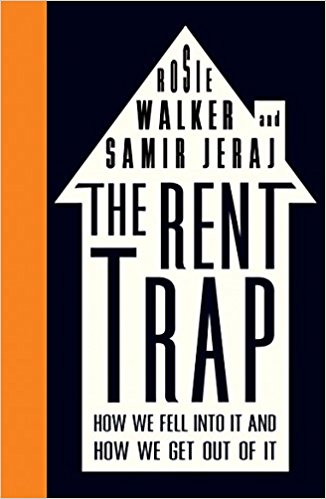
There is nothing worse than failing to look back to the past for lessons for today, and tomorrow’s Left. Unfortunately however the process of going backwards to go forwards too often becomes a recipe of being trapped by yesteryear’s models. Don Watson’s Squatting in Britain 1945-1955 is a text book avoidance of that trait and deserves a wide reading too post-Grenfell. Another book useful for those reflecting on Grenfell is Justice Denied a powerful reminder that righting wrongs is never anything less than a battle , Orgreave and Hillsborough are more than enough testament to that. Gregor Gall’s Bob Crow, Socialist, Leader, Fighter is described as a ‘political biography’ which neatly sums up its appeal. The story of not just a forceful personality who fought his way to the top of his trade union but the values he sought to protect and promote via the campaigns he helped lead. A very different story is Jonathan Lerner’s autobiographical Swords in the Hands of Children. This is the era of ’68, all that hope, liberation and revolt and when all of that came to nothing, the self-destruction that came next.
Twentieth Century Communism is an uncanny read for those interested in rediscovering the range, content and meaning of perhaps the most important radical tradition of the past century. The latest edition is a special issue dedicated to the literature of communism.Edited by Paul Flewers and John Mcllroy 1956 : John Saville, EP Thompson & The New Reasoner combines both the original ’56 debates with a hugely effective and informative commentary provided by the editors. But of course it is 1917 which is attracting the most attention in the Russian Revolution’s centenary year. The Dilemmas of Lenin by Tariq Ali is no hagiography yet the message of the enduring case for revolution shines through, whatever the changes in circumstances. For a short and very readable account of the movements that produced the Russian Revolution Dave Sherry’s Russia 1917 : Workers’ Revolution and the Festival of the Oppressed. Written with a style few other authors would even attempt to match October by China Miéville is novel, yet politically compelling, a book to appeal to those who remain drawn to the romance of the revolutionary ideal. For an insight into the culture the revolution helped produce and then propel on to a world stage 1917 : Stories and Poems from the Russian Revolution edited by Boris Dalyuk is the perfect accompaniment.
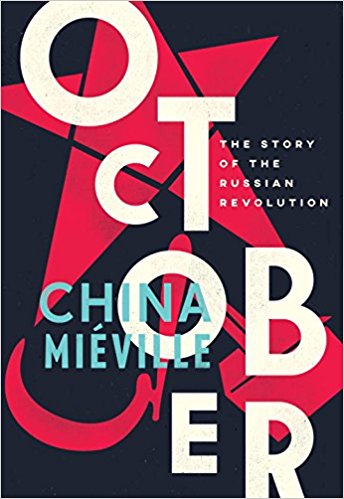
Of course over the decades a culture of resistance has taken many forms, the latest #grime4corbyn too recent to have very much written about it yet. Trish Winter and Simon Keegan-Phipps trace folk’s peculiarly English traditions in their book Performing Englishness. Billy Bragg’s Roots, Radicals and Rockers is a magnificent account of skiffle which along the way Billy claims helped change the world. Two books that cover more recent collisions of music and politics are Fightback: Punk, Politics and Resistance edited byThe Subcultures Network and the Gavin Butt, Kodwo Eshun,Mark Fisher edited collection Post Punk Then and Now. Dave Randall’s Sound System : The Political Power of Music. is an unforgiving call to guitars, drums, keyboards, sax, by any instruments necessary to change the world.

Of course no summer would be complete without the joys of salads, picnics, barbecues with ice-cold chilled drinks on the side. Be overwhelmed with ideas to sparkle the appetite, and without a sniff of meat in sight from Sam Murphy's superb Beautifully Real Food.
And the other treat no summer would be complete without is of course a decent thriller. Chris Brookmyre’s latest Want You Gone certainly won’t disappoint with his customary mix of dramatic plot turns, rich humour and tartan noir. Nor should the grown-ups be allowed to have all the reading fun either. Michael Rosen’s latest creation , Uncle Gobb, reappears in Uncle Gobb and the Green Heads, hours of fun for young readers while adults can ponder if this Gobb character is really the living embodiment of the marketisation of our chidren’s education. 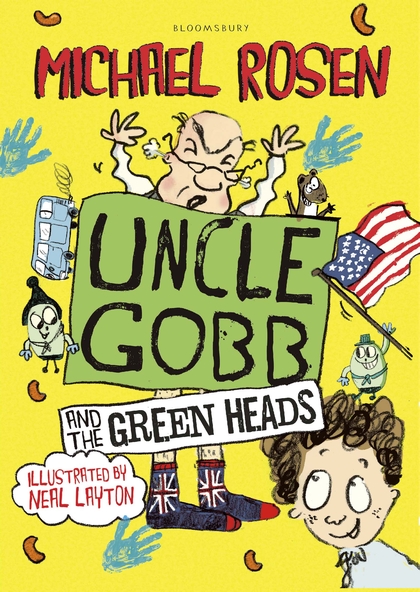
Making sense of 2017’s political surprises requires both an understanding of the present and the ability to connect this to a theoretical framework as a means of exploration and explanation too. The reissue of Perry Anderson’ s The Antinomies of Antonio Gramsci with a new, and very substantial, preface is a superb sign post towards such an intellectual journey.
Unarguably the most significant populariser of Gramsci, and one of the founders of the modern academic discipline of Cultural Studies, Stuart Hall, has been treated to a recent spate of well-deserved books of late. His partial autobiography Familiar Stranger has been published posthumously with the help of his long-time collaborator Bill Schwarz. David Scott’s Stuart Hall’s Voice consists of a wonderfully original format, a series of letters written to Hall after his death exploring the significance of his legacy to so many contemporary intellectuals who remain enthralled by his influence. Within the academy that influence remains most alive, and at its best still kicking too, in cultural studies, the publication of Hall’s lectures from 1983 which framed this influence, Cultural Studies 1983 : A Theoretical History edited by Jennifer Daryl Slack and Lawrence Grossberg therefore could not be more welcome. 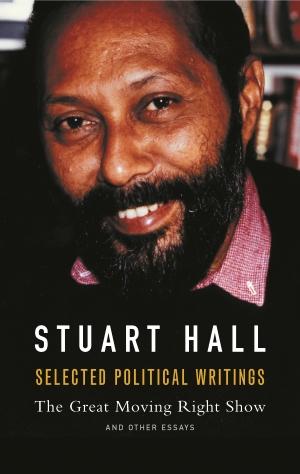
And it is Stuart Hall who post-election provides us with our book of the quarter too. Wherever we spend the summer relaxing and recovering, the collection Stuart Hall Selected Political Writings : The Great Moving Right Show and other Political Essays is both a timely an enjoyable read. On the page, and for those of us who were lucky enough to hear him, as a speaker too, Stuart Hall brought the analysis of politics alive in a way which is sorely missed in 2017. These essays provide a sharpness of intellect and warm embrace of analysis that are a positive joy to read, new and afresh or but read in a new times, good and bad, that even Stuart Hall could never have foretold.
Mark Perryman is the co-founder of Philosophy Football. His own book, the edited collection The Corbyn Effect is out from Lawrence & Wishart in mid September. 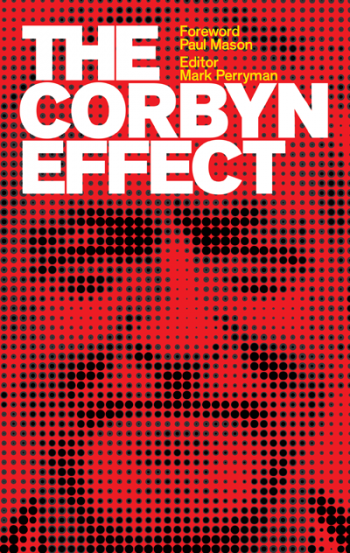
Note No links in this review are to Amazon, if you can possibly avoid buying your books from corporate tax dodgers please do so.
Nothing To Lose But Our Chains
01.07.17
As the annual cycling spectacle of the Tour De France begins Mark Perryman argues the case for two wheels good
Who would have guessed it. Karl Marx was clearly a bike mechanic when he wasn’t plotting the downfall of capitalism. ‘ Nothing to lose but your chains’ is handy advice when the derailleur slips and furious pedalling propels bike and rider precisely nowhere. OK Marx was more interested in liberating the workers of the world than the freedom of the road though with committed cycle-commuter Jeremy Corbyn quite possibly in need of a Downing Street bike rack soon there doesn’t seem a better time to make the case for cycling as the people’s sport.
For those who take an interest in the competitive side Le Tour will be on the TV for the next three weeks as it weaves its way from the Grand Départ in Germany ,through Belgium, a quick detour to Luxembourg and across France to the traditional finish on the  Champs Élysées. That’s two boxes ticked straightaway in my case for a people’s sport. Firstly, despite Sky’s sponsorship of the premier British team competing, the race is broadcast on terrestrial TV, live and highlights packages, free to air on ITV4. And secondly this is a genuinely internationalist event. Fundamentally French of course but shared with all manner of other European countries too in terms of where it may start, the stages too, but never the ending, that will always be Paris. Not quite the proletarian internationalism of our Marxist dreams but not a bad model for a sporting culture beyond borders. And of course lined along the route in their hundreds of thousands the fans, none paying even a cent, or nowadays a Euro, for the privilege. Nor is there any significant infrastructure to waste huge amounts of money in, leaving stadia and other facilities behind never to be filled again. Instead just about the only spend is to improve the road surface, for the benefit of all. For the many, pedestrians, cyclists and car-drivers alike.
Champs Élysées. That’s two boxes ticked straightaway in my case for a people’s sport. Firstly, despite Sky’s sponsorship of the premier British team competing, the race is broadcast on terrestrial TV, live and highlights packages, free to air on ITV4. And secondly this is a genuinely internationalist event. Fundamentally French of course but shared with all manner of other European countries too in terms of where it may start, the stages too, but never the ending, that will always be Paris. Not quite the proletarian internationalism of our Marxist dreams but not a bad model for a sporting culture beyond borders. And of course lined along the route in their hundreds of thousands the fans, none paying even a cent, or nowadays a Euro, for the privilege. Nor is there any significant infrastructure to waste huge amounts of money in, leaving stadia and other facilities behind never to be filled again. Instead just about the only spend is to improve the road surface, for the benefit of all. For the many, pedestrians, cyclists and car-drivers alike.
Of course like previous Tours this one will be mired in an unfolding drugs controversy . Made all the more awkward this year though forBritish cycling fans by the fact that the spotlight will be mainly on Team Sky, rider and race favourite Chris Froome and Team Sky Principal Dave Brailsford. Allied with both the unresolved drug allegations against Bradley Wiggins and the prolonged furore over sexism and bullying in and around the Olympic Team GB track cycling squad this has all threatened to dim the golden glow of Britain’s single most successful sport over the past decade. Cycling has taken a knock, there’s not much doubt about that. But the roots of its appeal are now so deep all the signs are that it will not only survive but continue to flourish too.
Marx, notwithstanding my spurious claims for his contribution to the art of bicycle maintenance (famously, similar claims have been made for Zen and the art of motorcycle maintenance too) is at least partially responsible for the answer. Cycling, like all sport, is socially constructed. It is a leisure activity we can take part in without scarcely even noticing. What other sport can double up as a means of getting to work, to do the shopping, to pop down the pub? A bike can provide the basis for a family day out too, perhaps best of all it’s a habit we can pick up as children and once we’ve learned not to fall over it’s a skill we never lose.
Of course at the upper end of cycling culture, particularly men who take the spprt up while suffering from a midlife cycling crisis, the bikes cost the proverbial arm and a leg. Many observers suggest that this in part explains the decline in golf, middle aged men who should know better investing in handbuilt carbon frames with all the gear to go with it rather than ever-escalating green fees to tee off at the most expensive 18 holes. Yes the recession hurts even the most well-paid, so there’s almost certainly something in this but the class enemy on two wheels represent only one particular portion of cycling’s growing popularity.
Likewise the impact of the drug, bullying and sexism scandals. Elite success, Wiggins and Froome winning Le Tour, bucketloads of Olympic Cycling Gold medals certainly contributed something to cycling’s appeal. It was a bit like Coe, Ovett, Cram and Elliott’s success on the track coinciding with the late 1970s to early 1980s running boom. A factor, but not the total explanation the media-boosters would like to claim for their coverage.
A green environmentally-friendly pursuit, increasing investment in safer cycling routes and paths, sunnier summers (I know, climate change is devastating but right now while the sun shines plenty are making the most of it), austerity staycation culture, these are at least as important factors, and together add up to a whole lot not more. Hence the social construction explaining cycling’s growing and enduring popularity, not to mention to grow some more under a genuinely cyclist socialist PM. There’s a durability to this appeal unikely to be materially affected by news of dodgy medicinals or bullying coaches.
Sport’s core attraction is always assumed to be competition. Wrong. For most this only applies to the spectators, those who watch but don’t do. Being on the losing side bringing up the rear does more to deter the young from sport than virtually anything else. And once deterred regardless of the presence of compulsory sport lessons hardly anything else proves effective in reconnecting the inactive with participation. This is where cycling is key. ‘ Just do it’? Half the time we don’t even realise we’re doing it , the blurring between means of transport, leisure activity, competitive sport an advantage, most certainly not a disadvantage.
I’ll conclude with just about the most communistic sports event I’ve ever taken part in, the increasingly popular cycling sportive. No the organisers aren’t planning revolution via long rides through the countryside but to my mind 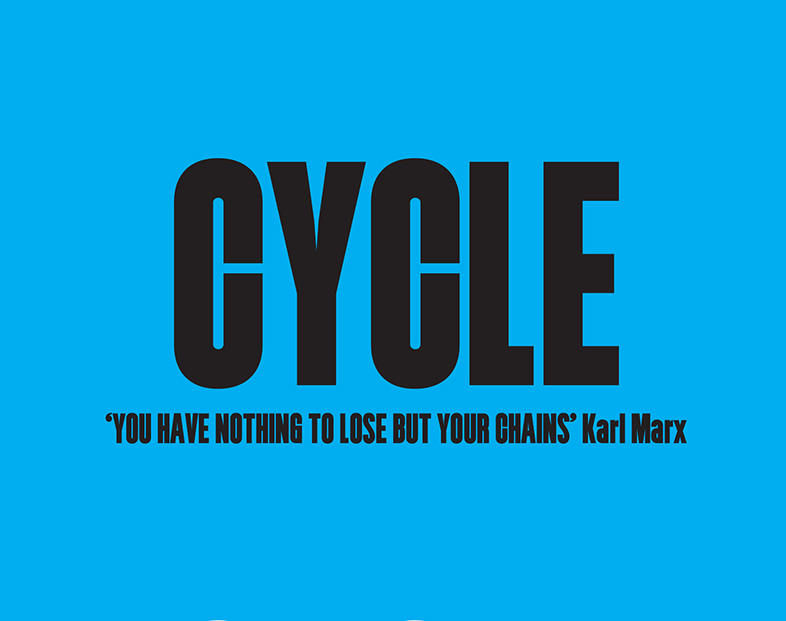 the format unwittingly subverts the competitive instinct via equalising participation. Staggered starts over varying distances so nobody knows who the winners are, or crucially, the losers either. For some racing against their own individual clock, for all a collective race against the shared distance and terrain. More often than not raising money for a good cause. The same prize wherever you finish,. Not that I’ve ever seen Marx on one mind, must be back in his bike shed working on unfettering those chains.
the format unwittingly subverts the competitive instinct via equalising participation. Staggered starts over varying distances so nobody knows who the winners are, or crucially, the losers either. For some racing against their own individual clock, for all a collective race against the shared distance and terrain. More often than not raising money for a good cause. The same prize wherever you finish,. Not that I’ve ever seen Marx on one mind, must be back in his bike shed working on unfettering those chains.
 Mark Perryman is the co-founder of Philosophy Football. The ‘Nothing to Lose but Your Chains’ Cycling T-shirt is available from here
Mark Perryman is the co-founder of Philosophy Football. The ‘Nothing to Lose but Your Chains’ Cycling T-shirt is available from here
A Riot of Our Own
31.03.17
8th April is the 40th Anniversary of The Clash Debut Album Mark Perryman asks what the 1977 punk and politics mix was all about?
The birth of punk for most is dated on or round 1976 with the November release that year of the Sex Pistols’ Anarchy in the UK with both music and movement kickstarted into the ‘filth and fury’ headlines via the band’s expletive-strewn Bill Grundy TV interview.
More Situationist than Anarchist Rotten and the rest were of course key to the detonation of a youthful mood of revolt alongside the not entirely dissimilar The Damned, Manchester’s Buzzcocks and the more trad rock Stranglers. Giving the boys’ bands a run for their money The Slits pushed perhaps hardest at punk’s musical boundaries, their Typical Girlstrack quite unlike what the others were recording.
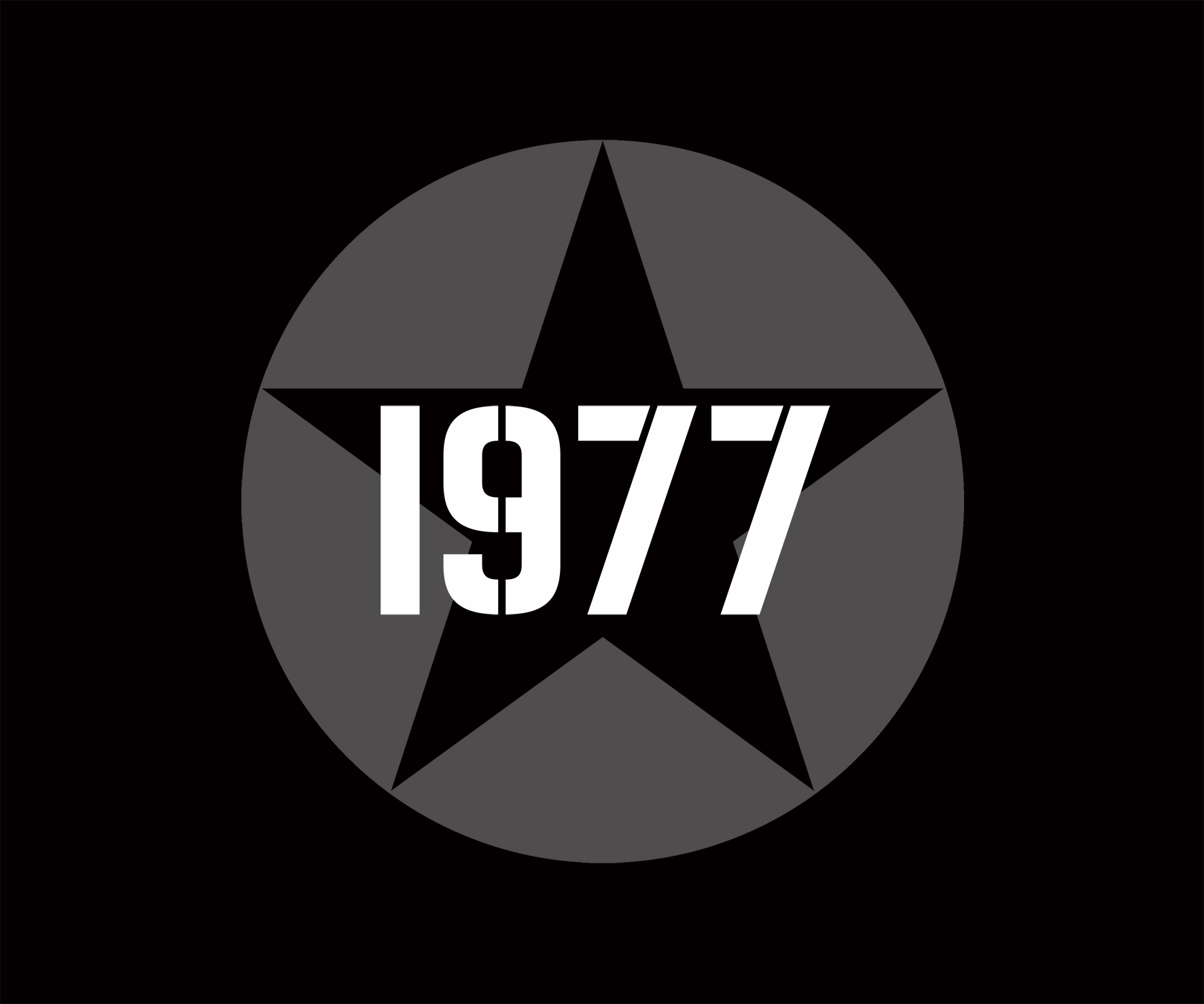 But it was The Clash that more than anyone who symbolised the punk and politics mix , showcased on their debut album The Clash, released 40 years ago 8th April ’77. From being bored with the USA and angrily demanding a riot of their own via hate and war to non-existent career opportunities, fourteen tracks, played at furious speed to produce two-minute classics. The one exception their inspired cover version of Junior Murvin and Lee ‘Scratch’ Perry’s Police and Thieves, played slow, the lyrics almost spoken rather than sung backed by a pitch perfect reggae beat.
But it was The Clash that more than anyone who symbolised the punk and politics mix , showcased on their debut album The Clash, released 40 years ago 8th April ’77. From being bored with the USA and angrily demanding a riot of their own via hate and war to non-existent career opportunities, fourteen tracks, played at furious speed to produce two-minute classics. The one exception their inspired cover version of Junior Murvin and Lee ‘Scratch’ Perry’s Police and Thieves, played slow, the lyrics almost spoken rather than sung backed by a pitch perfect reggae beat.
The album cover shows the youthful threesome of Strummer, Jones and Simonon in their artfully stenciled shirts and jackets that was to become their signature stagewear uniform completed by the obligatory skinny jeans, white socks, black DM’s. The print quality is purposely poor to add a degree of authenticity that this band more than most hardly needed. But it was the back cover that is the more telling. A scene from the 1976 Notting Hill Carnival Riots 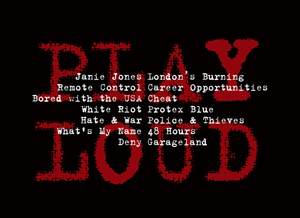 with the Met’s boys in blue, these were the days before RoboCop style body armour, riot shields, helmets with visors, in hot pursuit of black youth retreating and regrouping under the Westway flyover.
with the Met’s boys in blue, these were the days before RoboCop style body armour, riot shields, helmets with visors, in hot pursuit of black youth retreating and regrouping under the Westway flyover.
It was that experience in ’76 that inspired The Clash’s anthemic White Riot and the lines ‘ WHITE RIOT! I WANNA RIOT . WHITE RIOT! A RIOT OF MY OWN.’ At the time the National Front’s streetfighting racist army was laying waste wherever they marched, their leaders John Tyndall and Martin Webster pretty much household names, and the NF was getting indecent enough votes to suggest an electoral breakthrough might be a possibility. The potential for ‘White Riot’ to be misinterpreted then, and now too, is obvious. But the band’s intent couldn’t be clearer. Living, and recording in around the Westway they embraced the changes this West London community had undergone since the 1950s, Caribbean music, food and fashions as much a part of who The Clash were as rock and roll, Sunday roast and safety pins. It was a spirit of Black defiance they sought to share not oppose.
“ All the power is in the hands
Of people rich enough to buy it,
While we walk the streets
Too chicken to even try it.
And everybody does what they’re told to
And everybody eats supermarket soul food!”
A year after the album’s release and The Clash headline the first Rock against Racism carnival in London’s Victoria Park. The dayglo politics of this musical culture of resistance fitted perfectly with the agitprop look and lyrics of the band. Not just them either. From Polly Styrene of X-Ray Spex’s Oh Bondage Up Yours!punk feminism via Tom Robinson’s liberatory Sing If You’re Glad to be Gayand Birmingham’s Steel Pulse with tales of a Handsworth Revolution. This wasn’t just a line up that commercial promoters in ’78 would die for it was a platform to challenge prejudice both without and within that we could dance to, or jump about to more like.
In her book 1988 The New Wave Punk Rock Explosion, confusing actually published in 1977 Caroline Coon predicted of The Clash ‘ their acute awareness, and ability to articulate the essence of the era which inspires their music, will make their contribution to the history of rock of lasting significance. Happy times are here again.”
The Clash inspired, and continue to inspire, a wave a bands who play music we can dance to and march to in equal measure. Belfast’s Stiff Little Fingers and Southall’s Ruts, the Au Pairs stand out from back then. Poets too, who often styled themselves as ranters, Seething Wells, and of course Attila the Stockbroker. Then came the unforgettable and much-missed Redskins and the hardy perennial favourite Billy Bragg of so many musical incarnations. Today? A new wave (sic) of bands whose influences, musically and politically, can be traced back to ’77 era Clash would certainly include The Wakes, The Hurriers, Thee Faction, Joe Solo, Louise Distras, Captain Ska, Séan McGowan and more. Off the musical beaten track yet holding out for a better tomorrow with tunes to match.
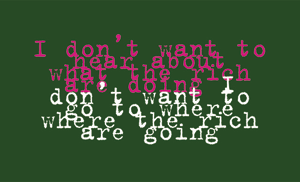 Like all successful musicians The Clash did become in their turn stars, celebrities, their appeal went mainstream, the venues became bigger and bigger though through force of circumstance the band bailed out before they reached U2’s overblown proportions or outstayed their musical welcome to play into their dotage Rolling Stones style. 1977 is a moment to look back to and remember but not to fossilise, that would be the antithesis of everything they represented or as the final track from the album put it :
Like all successful musicians The Clash did become in their turn stars, celebrities, their appeal went mainstream, the venues became bigger and bigger though through force of circumstance the band bailed out before they reached U2’s overblown proportions or outstayed their musical welcome to play into their dotage Rolling Stones style. 1977 is a moment to look back to and remember but not to fossilise, that would be the antithesis of everything they represented or as the final track from the album put it :
"I don't want to hear about what the rich are doing, I don't want to go to where, where the rich are going."
Garageland. That’s where they came from and never entirely left either. Its why more than anything else ‘77 Clash in 2017 matter still.
’77 Clash T-shirt range available now from Philosophy Football
‘ 77Clash Night is presented by Philosophy Football in association with the RMT and supported by the FBU, Brigadista Ale and R2 Magazine. Saturday 8th April, the 40th anniversary of the release of The Clash Debut Album side one played live ‘as was’, side two ‘played now’ by artists of today remixing and rewriting the originals. At Rich Mix, Shoreditch, East London. Tickets just £9.99 from here
- And then there were two
01.03.25 - This Land is (still) Your Land
22.02.25 - Happy 80th Birthday Bob Marley
01.02.25
